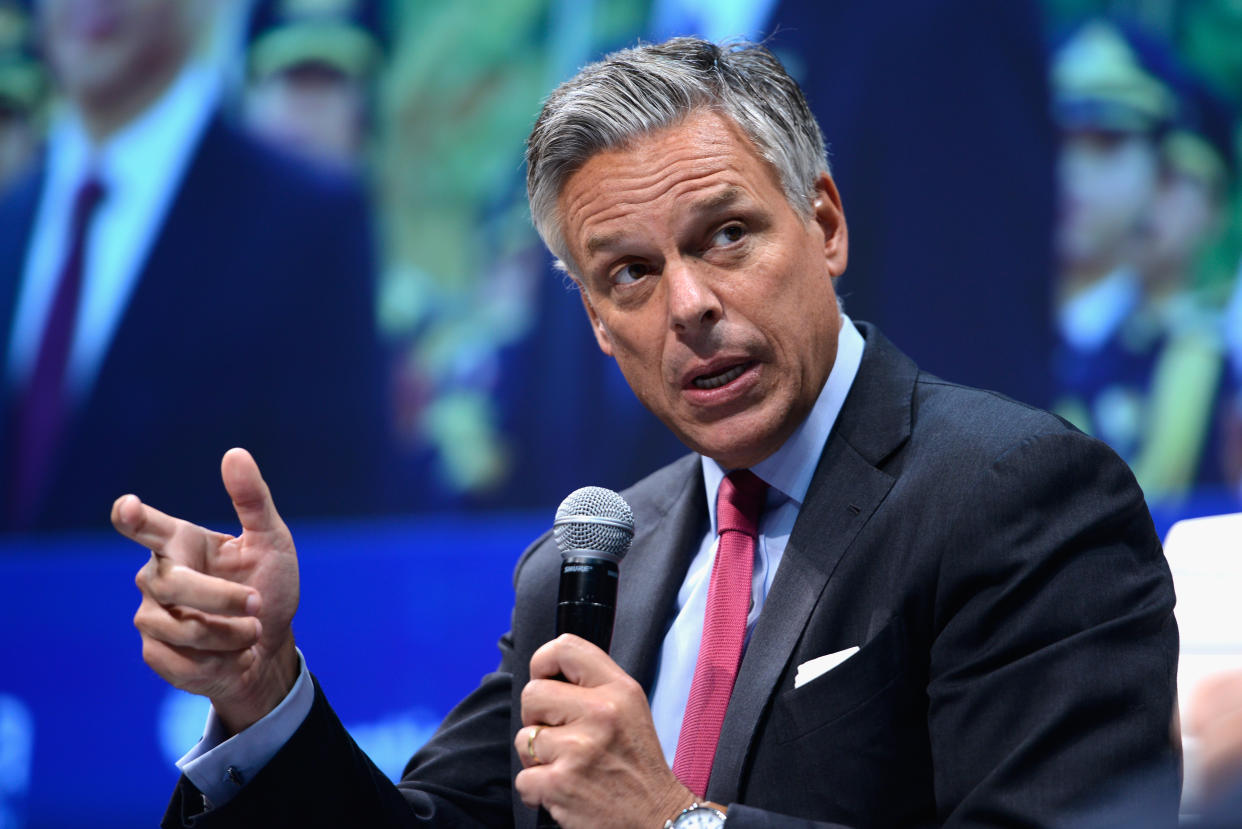Huntsman, nominated as Moscow envoy, backed Trans-Pacific pact Trump (and Putin) opposed

As recently as January, Jon Huntsman, President Trump’s nominee for ambassador to Russia, was arguing in favor of the Trans-Pacific Partnership trade deal, which Russian President Vladimir Putin strongly opposed. But that shouldn’t stand in the way of their relationship since Donald Trump had the same position as Putin.
“Ratifying TPP — fixed as needed — is also critical to a successful Asia strategy. Failure of TPP would not only deny the United States economic benefits but also be a severe blow to U.S. credibility and leadership in the region,” according to a report Huntsman co-authored. Pulling out would be “politically expedient but ultimately self-defeating.”
Huntsman, who was U.S. ambassador to China during President Obama’s first term, was a longtime supporter of the agreement, meant to improve trade between the United States and East Asian countries, not including China. Trump withdrew the United States from TPP just days after entering the White House.
Huntsman goes before the Senate Foreign Relations Committee on Tuesday for his confirmation hearings. Those question-and-answer sessions are traditionally an opportunity not just to take stock of a nominee but also to dissect a president’s policy.
Huntsman is hardly an unknown, a former Utah governor who made a failed White House run in 2012. Senate aides of both parties predict he’ll be confirmed.
But Tuesday’s hearing — shortly after Trump makes his maiden speech to the U.N. General Assembly — will dig into U.S. relations with Russia, notably the president’s frequently stated desire for better relations, as well as the U.S. intelligence community’s evidence that Moscow interfered in the 2016 election.
Compared to Russia’s invasion of Ukraine and its alleged meddling in the race between Trump and Hillary Clinton, TPP is a mere footnote in the souring of Russian-American relations.
But Russia publicly opposed the pact, viewing it (much as the agreement’s backers did) as an effort by the United States to cement its influence in Asia.
“Obviously, the Trans-Pacific Partnership is just another U.S. attempt to build an architecture of regional economic cooperation that the U.S.A. would benefit from,” Putin said in a November 2015 interview with Chinese media. “I believe that the absence of two major regional players such as Russia and China in its composition will not promote the establishment of effective trade and economic cooperation.”

A year later, Russian Foreign Minister Sergey Lavrov complained that Russia had been shut out of TPP as well as the Transatlantic Trade and Investment Partnership (TTIP).
“Both have been declared as closed-door associations to which countries chosen by the European Union in the case of the Transatlantic Partnership and the Americans in the case of the Trans-Pacific Partnership have been individually invited. No one else is invited, and besides the negotiations are secretive in both cases,” Lavrov said.
“We regard this as an undesirable trend, which is even dangerous and destructive as it may damage the universal multilateral trade system,” Lavrov said.
Both candidates in the 2016 election opposed TPP, in the face of voter concerns that it would cost American jobs. Trump pulled the United States out of the agreement, but Hillary Clinton had said she would do the same.
“It sounds good rhetorically on the stump” to attack TPP, Huntsman said in a June 2016 interview with the Wall Street Journal. But the agreement will serve as “our strategic backbone in the region.”
“That will have to be recognized and dealt with. You just can’t wish it away, you can’t renegotiate it. You can’t open up trade agreements that have already been done,” Huntsman said. ”Nobody would ever negotiate with you again. Nobody would ever have confidence in the United States again to do another trade agreement.”
_____
Read more from Yahoo News:



